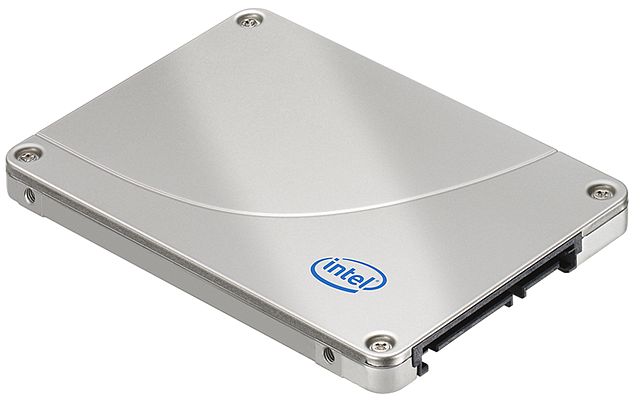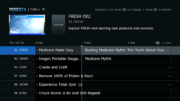You’d think it would be a no-brainer. DVR users want quiet, small boxes that run without a lot of heat. That’s just what solid state drives offer. Solid state drives are found in everything from cell phones and tablets to laptops and desktops, and they run both quickly and quietly. So why aren’t they in DVRs?
It’s not apples to apples
The first consideration is cost. People who are perfectly happy shelling out $900 for a top-end iPad will complain when they have to pay $299 for a DVR. The DVR is considered to be “part of the deal,” expected to be heavily discounted when you sign up for service. Let’s compare apples to apples here. The Genie 2 Server uses a 2 terabyte drive. Similar drives can be found online for about $80. The same drive in SSD form is about $170. It’s come down in recent years but that’s still a lot. That would be a bitter pill for both manufacturers and customers to swallow. I
Another thing you have to consider is the movement toward cloud DVRs. A cloud-based DVR can’t do everything. In many cases it won’t store local content, only national content. But for the content stored in the cloud, it’s a better experience. People can watch recorded stuff from anywhere. They don’t have to worry about hard drive failure. This is why we continue to see more movement toward cloud-based, on-demand DVRs instead of the traditional model. In the end it will be a hybrid model that wins. Some stuff will be local, some will be cloud based, and you won’t be able to see the difference.
The hardware problem
In past years, solid state drives have had another problem. The average hard drive can stand up to millions of read-and-write cycles, while early solid state drives were limited to about 100,000 cycles before being prone to fail. That may seem like a lot, but keeping in mind that your DVR is always buffering and recording, 100,000 reads and writes could be no more than a few months of use. That problem has been fixed for the most part in newer drives, but it’s too soon to see those fixes in a DVR; they’re usually years in the making.
Solid state drives bring big improvements in performance to computers and tablets because they are much faster to read and write. SSD’s have no mechanical heads to move around so information travels at the speed of light. This makes your tablet feel a lot more responsive even with a slower processor. On the other hand, DVRs work just fine with regular hard drives. Even if you could pull information faster, you would still be presenting it at the same speed… real time. It’s possible an SSD could give better performance with fast forward and rewind, or in pulling up playlists.
So, with higher costs, lower reliability and no increase in performance, solid state drives just aren’t a good deal in a DVR. That may not always be the case, but expect it to be several years longer before the familiar click-click of the hard drive in your DVR goes away.
Get the best DIRECTV accessories from Solid Signal
SolidSignal.com is your home for thousands of parts and accessories. You can live your best digital life when you shop with us. We have the same things the professionals use, and we go one step further. We offer customer service that’s better than the big web sites. Don’t believe me? Call us at 888-233-7563 during East Coast business hours. If it’s after hours, fill out the form below. We’ll get back to you, usually within one business day.





